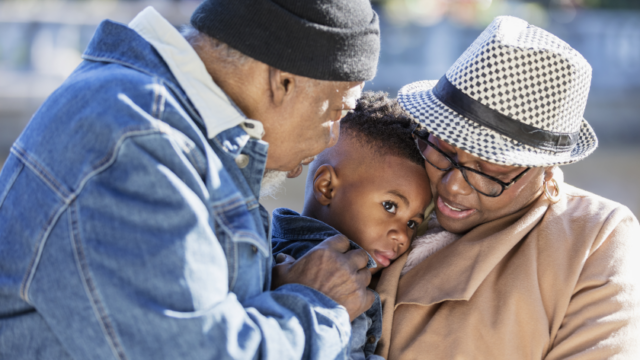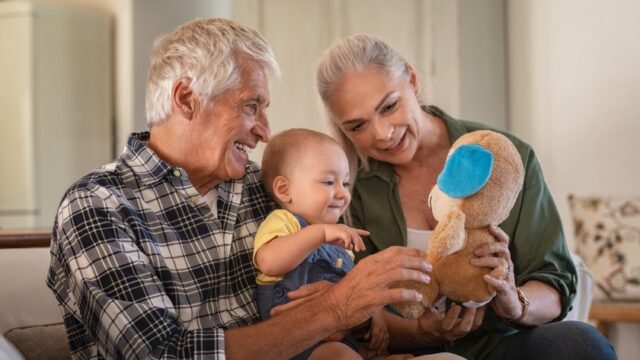Fact Sheet
Kinship/Grandfamilies: The Role of Area Agencies on Aging and Title VI Native American Programs
Download This Resource


Nationwide, more than 2.5 million children live in grandfamilies or kinship families, meaning that their grandparents, other relatives, or close family friends are raising them because their parents cannot.1 The terms kinship families, grandfamilies, and kinship/grandfamilies can be used interchangably to refer to these families. Both kin caregivers and the children in these families have unique strengths and needs that require support to help them thrive.
Leveraging funds from the federal Older Americans Act and other sources, many Area Agencies on Aging (AAAs) and Title VI Native American Aging Programs (Title VI programs) provide a variety of supportive services for kinship/grandfamilies.
This fact sheet provides a high-level overview of results from a recent USAging topical poll of AAAs and Title VI programs regarding their engagement with kinship/grandfamilies.2 According to the poll, two-thirds of AAAs and Title VI program respondents offer services tailored specifically to kinship/grandfamilies. Additionally, eight percent of respondents indicated that they assist kin/grandfamily caregivers with broader caregiver services but do not offer services designed specifically for kinship/grandfamilies.
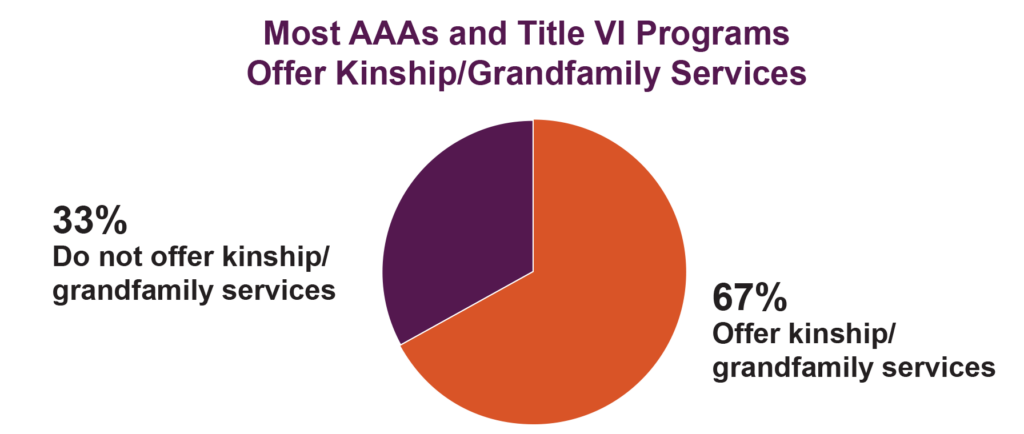
AAAs and Title VI programs provide critical support to kinship/grandfamilies in a variety of ways. In its 2021 State of Grandfamilies report, Generations United identified 11 “key services and supports” needed by kinship/grandfamilies. These include information and assistance in navigating and accessing available services, legal aid, support groups, childcare and/or respite care, financial assistance, and caregiver training or education. When asked about the services they provide to kinship/grandfamilies, AAAs and Title VI programs report that they offer many of these key supports.
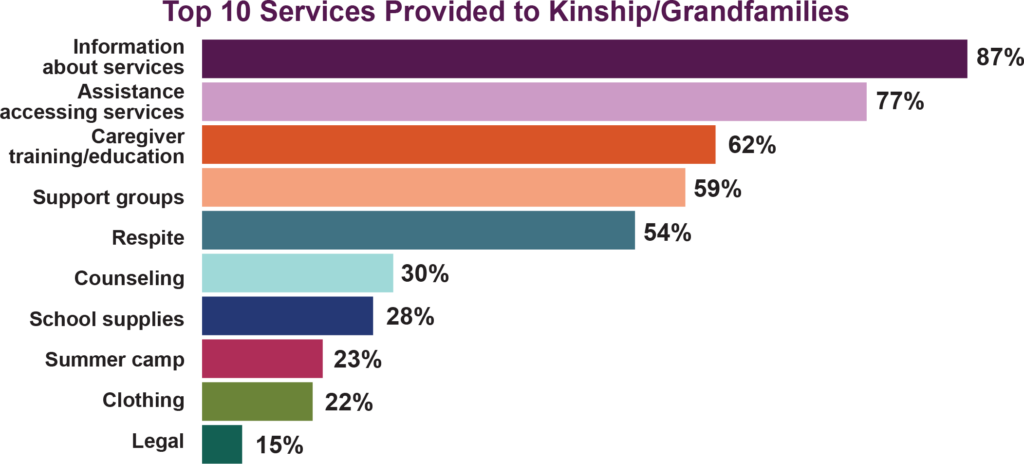
AAAs and Title VI programs develop a broad array of partnerships to expand their reach in the communities they serve. Respondents identified more than two dozen types of referral partners they use to support kinship/grandfamilies, with the top 10 depicted in the chart below.
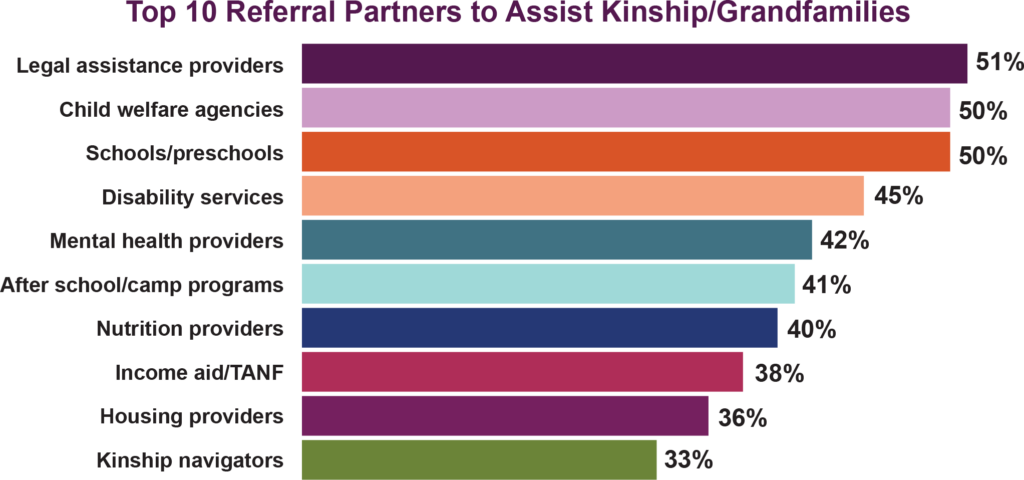
Despite their partnerships, AAAs and Title VI programs encounter challenges in serving kinship/grandfamilies. More than half of respondents identified outreach as one of their top three challenges in serving this population, which suggests an interest in reaching more kin/grandfamily caregivers. Other top challenges include limited funding and identifying partnerships to reach more kin/grandfamily caregivers.

The Grandfamilies & Kinship Support Network: A National Technical Assistance Center, and its partner USAging, are available to assist the Aging Network with outreach and other challenges in serving kinship/grandfamilies. We encourage you to submit a request for individual assistance and to sign up for the Network’s monthly newsletter.
The full report is available at www.usaging.org//publications and www.gksnetwork.org/resources/usaging-topical-poll/.
USAging represents and supports the national network of Area Agencies on Aging and advocates for Title VI Native American Aging Programs that help older adults and people with disabilities live with optimal health, well-being, independence, and dignity in their homes and communities. For more information, please visit www.usaging.org.
Footnotes
-
Grandfamilies & Kinship Support Network: A National Technical Assistance Center, Kinship/Grandfamilies Data, https://gksnetwork.org/kinship-data/.
-
Data in this brief was gathered through a 2022 survey of Area Agencies on Aging and Title VI Native American Aging Programs conducted by USAging as a partner in the Grandfamilies & Kinship Support Network: A National Technical Assistance Center, led by Generations United and funded by the U.S. Administration for Community Living. The online survey was disseminated via email in April 2022 to 610 AAAs and to 238 Title VI programs. The survey closed in June 2022 after receiving 213 responses, representing a response rate of 25 percent.
